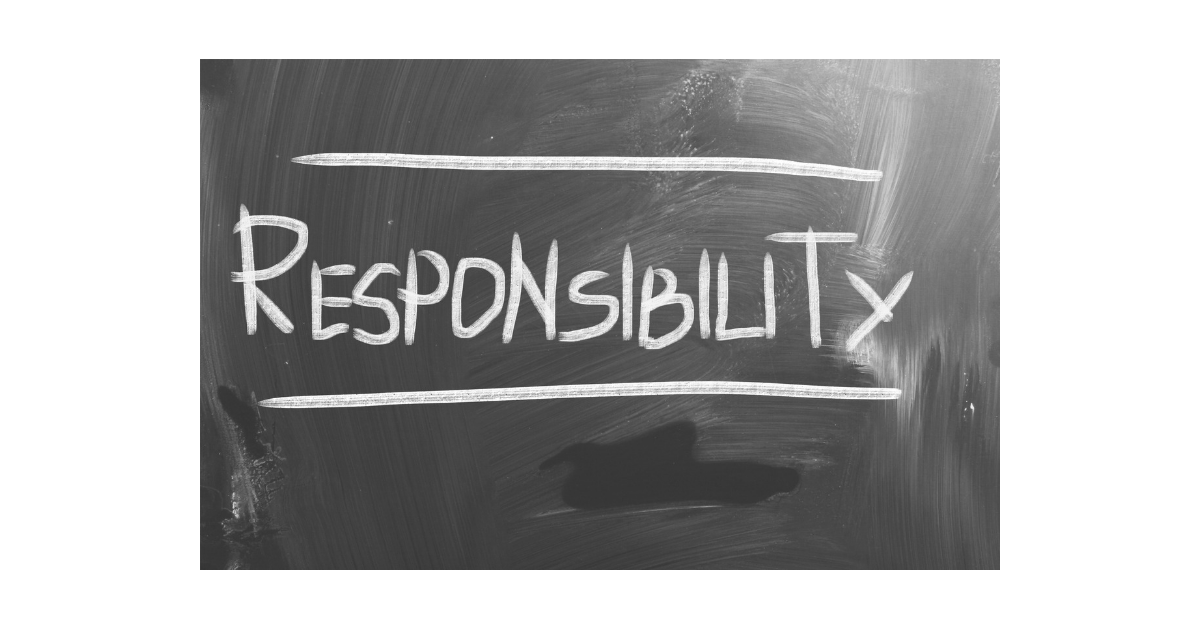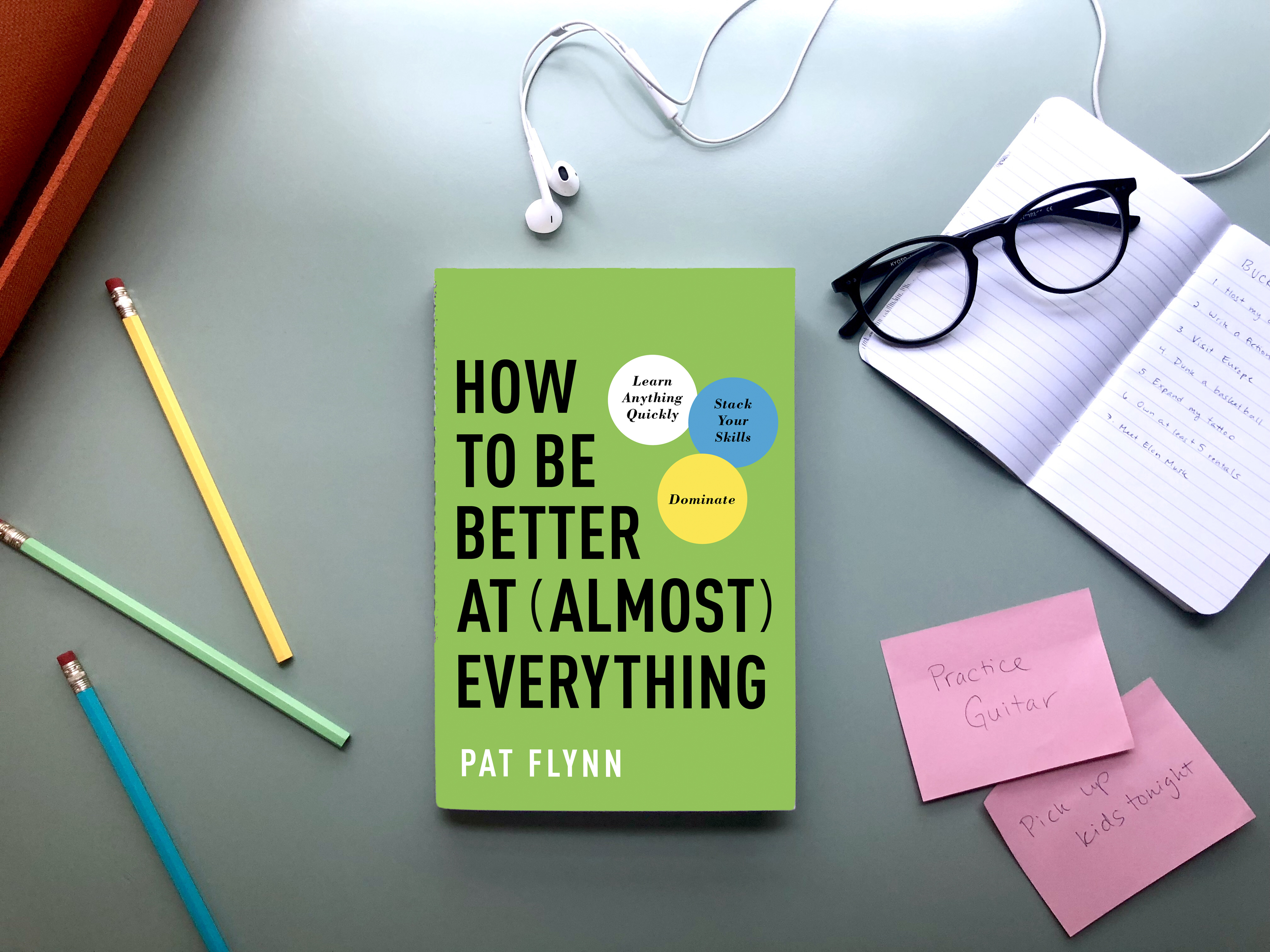
There are many interesting problems in society today. One example would be smog. Another would be malaria or those creepy thousand legged insects you sometimes see in the gym. But whatever problems are going on–and let’s be frank, some of them are horrific–there is one in particular I believe we could focus on today. That is the problem of personal responsibility, or, perhaps we could say, lack thereof.
I was talking with a person (that is, a human person–a real one) on my podcast yesterday. The conversation drifted along, as conversations do, from topic to topic, world affair to world affair. Eventually it settled upon the subject of responsibility. Both my guest and I agreed. Our lives were pretty much the pits until we stopped blaming others and started taking account of our own (frequently poor) decision making. OK, so maybe some misfortune was our parent’s fault–granted. And maybe some of it was generated from that collective and abysmal failure commonly referred to as the public school system–also granted. But surely some of it was on us.
The reason we got there is this. Often you hear people explaining their situations as being entirely a matter of circumstance. They say that because they were born in such a place or with so and so as their parents, they really couldn’t have done anything about the predicament they’re in. All those drunk driving incidences, their gambling debt, etc. And surely there are kernels of truth in situations like these. Humans have free will, but they do not have what philosophers call “maximal autonomy.” That is, one cannot rationally deny that certain influences are beyond a person’s control. A child who is born into a war torn country and is detonated by a landmine is not to be blamed for this appalling tragedy. It simply isn’t the child’s fault, what happened to them. But just because some things, some circumstances, and some situations are beyond what a person can influence does not mean that all things, all circumstances, and all situations are. In fact–and as we all very well know–some things we very much can influence, and other things we just have to accept.
Things Pat Flynn has to (or at least should) accept:
- Weird rash on my left hand
- Childhood events, some of them traumatic
- The odd amount of hair on my lower back
Things Pat Flynn can reasonably respond to:
- Pretty much everything else
Christian ethics says something very astute about this: A person’s life is not judged on their raw materials, so to speak–that is, their genetics or parents or whatever country they were brought up in, or some psychological complex, or what have you–but on what they were able to do with them. This is, in part, at least, why a Christian is asked not to judge, since a person may appear to be brave on account of storming the beach at Normandy, but that person, in a relative sense, may be demonstrating significantly less fortitude than another person who, suffering from felinophobia, picked up a cat. This could be true even if the felinophobe held the frantic animal very far out in front of themselves as they brought it outside.
The point is there are many influences that affect a person’s behavior. Perhaps the person who desires war is really a reckless idiot. Perhaps they get a certain sensual thrill from engaging in battle and seeing guts, and are not called by a sense of duty, but excitement. They may appear brave on the outside, and, surely, there is some degree of bravery going on, somewhere. But what we’re to recognize (according to the Christian, viewpoint, anyway) is that we are not in a proper position to say whether that person is really more brave than the agoraphobe who just walked to their mailbox for the first time this decade. Only God is in the position to make that assessment.
This leads us to the more important point. Whatever materials we’ve been handed in life–or whatever materials we haven’t–what is unacceptable is to assume a helpless and wallowing attitude. We are called to make the best of what we’ve got; to pick up our cross, assume our challenges, and turn what is rotten into something we can celebrate. Anybody who was ever declared a saint has done this, even if they were previously very weasley and degenerate people. I think of my own life, and the challenges I’ve been handed: Anxiety, OCD, depression, growing up overweight, out of shape, somehow entirely unconfident, occasional bouts of eczema, etc. The worst of my days were spent in victimhood; angry and ashamed, taking no responsibility for the hand I’d been dealt, blaming others and blaming–at one point, even rejecting–God. But now I can see there was a conspiracy of providence going on underneath, just waiting to be seen. The moment I began to choose different was the moment my life began to blossom again. That was the moment I began to assume responsibility.
Things certainly didn’t change over night, nor should I have expected them to. Aristotle (another old, dead guy) tells us about virtue and how good habits are formed over time. A good life then is much like a good tennis swing. There’s a lot of misses before you can get it right. But it starts with intention and decision, along with an understanding of how to deliver a proper overhand. From there, it takes a lot of swings. But with persistence you’ll eventually begin to serve a few over the net.
…
How to Be Better at (Almost) Everything

Be sure to snag a copy (or two!) of Pat’s new book How to Be Better at (Almost) Everything while it’s still on sale over at Amazon here for just $14: ==> https://amzn.to/2MHdHSh
Want some cool bonuses to go with, including an intense 5-day fitness plan, and a collection of 1-page skill building cheatsheets? Then simply email us at PatFlynn(at)Chronicles(of)Strength(dot)com with your receipt, and we’ll send them right along.
…
The Pat Flynn Show
If you enjoyed this episode, it would mean the world to me if you could subscribe to, and leave a review for, The Pat Flynn show on iTunes HERE or Stitcher HERE.
Reading your reviews and hearing your feedback is what keeps me fired up to make The Pat Flynn Show happen. Thank you!